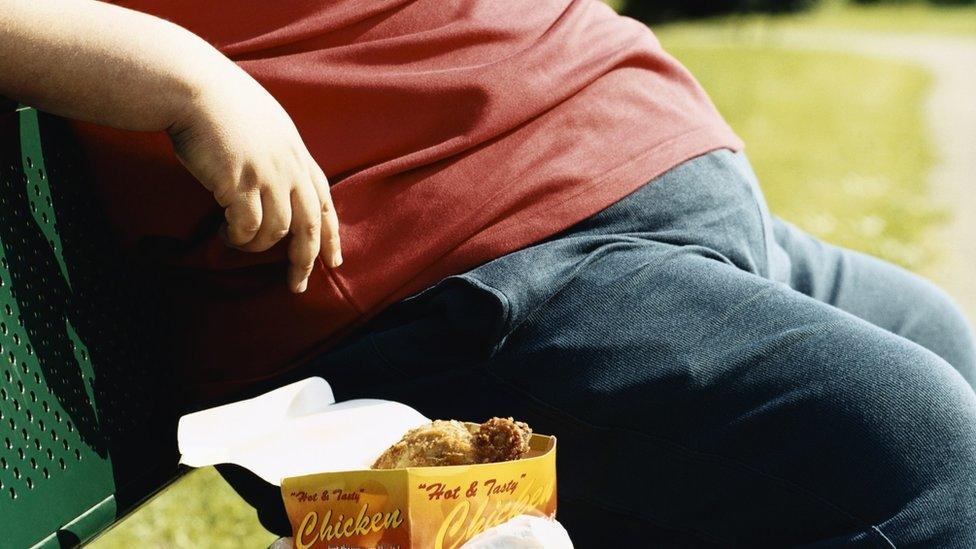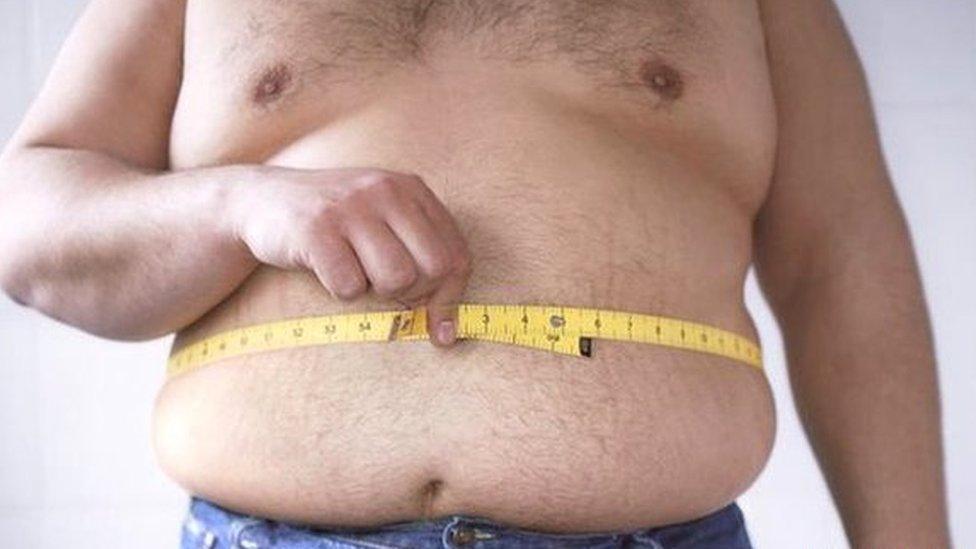Scots agree that food should be healthier
- Published

Most people supported action that makes it easier to make healthier choices
Most Scots support action to reduce the levels of sugar, fat and salt in food, according to the latest Scottish Social Attitudes survey.
It said 82% of the people surveyed backed measures to make the food they liked better for them.
The study said nine out of 10 people thought cheap fast food was too easily available and 62% supported a tax on sugary fizzy drinks.
However, there was less support (47%) for taxation on foods high in fat.
Researchers suggested the public currently perceives high-fat foods differently to those high in sugar.

Some people have protested over Irn Bru plans to cut the amount of sugar
Despite the survey showing support for the sugar levy, the BBC reported last week that fans of popular soft drink Irn Bru had started stockpiling it ahead of plans to cut the sugar content by almost half.
The latest statistics show 65% of the adult population in Scotland are overweight.
This has risen from 52% in 1995 and is one of the highest levels among the OECD group of developed nations.
Data from 2016 shows 29% of Scots are obese, meaning they have a body mass index between 30 and 35 kg/m2.
This increases the likelihood of developing a number of serious health conditions, including type 2 diabetes, heart conditions, stroke and osteoarthritis.

Almost two-thirds of Scots adults are overweight or obese
The survey was commissioned by NHS Health Scotland to find out what people think about action to tackle obesity.
About 80% of those asked agreed with the statement that most people are overweight because they eat too much and exercise too little.
Even more (91%) said people were overweight because of the type of food they ate.
Less than a fifth of people surveyed said being overweight was something inherited from parents or because of low metabolism.
The social attitudes survey found that 66% backed restricting unhealthy foods at supermarket checkouts.
There was also majority support for restrictions on advertising and sponsorship, and restrictions on portion size.
However, the most popular measure to tackle obesity (86%) was more free weight management courses.

Eight out of 10 people surveyed said most people are overweight because they eat too much and exercise too little
According to the survey, people "underestimated" the health effects of being overweight and obese.
Less than half the population understood the risk of cancer from being obese, it said.
However, seven out of 10 people agreed that levels of people being overweight and obese was a problem that needed to be addressed.
The Scottish Social Attitudes has been run by ScotCen Social Research since 1999.
The obesity module in the 2016 survey included 40 questions developed in consultation with NHS Health Scotland.
A random sample of 1,237 individuals aged 16 years and over took part.
- Published4 January 2018

- Published26 October 2017

- Published3 October 2017

- Published16 May 2017
